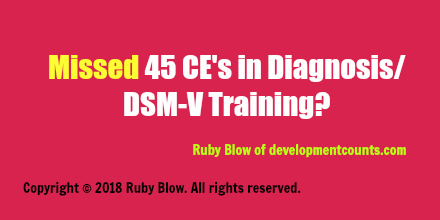Psychology, Psychiatry, Psychotherapy
Today I heard a podcast featuring a Professional Counselor who was asked to describe what psychotherapy is and what the difference is between a Psychologist, a Psychiatrist and a Psychotherapist. The response was very confusing and also very incorrect. It suggested that all Psychotherapists were master’s level degree holders and that Psychiatrists and Psychologists don’t do psychotherapy. Furthermore it suggested that Psychotherapists do the “hard work” and “heavy lifting.”
As a clinical supervisor and educator, I feel compelled to share some important distinctions that can be used to educate those entering the profession as well as the general public. So this is part 2 in my Information and Resource Series.
What is Psychotherapy?
Generally speaking, a person who practices psychotherapy identifies themselves as using an understanding of both interpersonal/relational dynamics, and also early identity formation in the family as a framework for “talk therapy.” They use listening skills and analyze the conscious and unconscious underpinnings of a person’s personality, motivations, emotions, behaviors and responses. It is a method of treatment used to alleviate psychological and emotional distress ranging from depressed mood and anxiety to relationship and life transitions. Some methods involve pursuing “insight,” which involves the client or patient developing a deeper understanding of themselves. Others focus on “experiential” change as a result of the therapeutic relationship.
Experiential work involves the client having a new and healthy experience in their interactions with their therapist. This entails the relationship itself healing previous hurts. Additionally, it involves the client/patient experiencing themselves behaving in new ways that will transfer to other relationships. Generally speaking, psychotherapy involves long term therapeutic work.
What is the Difference Between a Psychiatrist and a Psychologist?
A Psychiatrist is a medical doctor whose specialty involves the diagnosis and treatment of mental disorders from the perspective of the medical model. This is not to suggest that mental disorders or mental illness do not have very real roots in neuro-cognitve and neuro-chemical processes. It is simply to say that they are trained to treat these conditions medically with medical interventions.
They prescribe psychotropic medication to treat a wide variety of mental disorders. Including, but not limited to schizophrenia, depression, anxiety, ADHD and so on. Some Psychiatrists are trained to provide psychotherapy and take a great interest in it. Others learn enough skills to conduct the diagnostic interviews and check-in appointments they hold with patients to follow their medication and its effectiveness or ineffectiveness. This is commonly referred to as medication management.
As MD’s, Psychiatrists are governed by medical boards with regard to their licenses to practice.
Their professional association is the American Psychiatric Association. That is the organization behind the development of the Diagnostic and Statistical Manual of Mental Disorders. The DSM-5 is the most recent version. The DSM is constantly under revision as the profession continues to adapt mental disorders to societal and cultural norms.
A Psychologist is a person who has completed a doctoral degree in the field of psychology, which is the study of human behavior. Their degrees are Ph.D’s or Psy.D’s. Generally speaking, Ph.D’s are offered by traditional degree granting universities with graduate programs. Psy.D’s are offered in many cases by professional schools that differ from traditional models in that they are generally for-profit institutions. The Psy.D is focused on clinical treatment. Whereas Ph.D’s may focus on clinical practice, research or other specialty areas like social psychology and so on.
Clinical Psychology programs train their students in the use of psychological assessment instruments and testing materials. Psychologists may or may not incorporate testing into their post graduate clinical practice. Many Psychologists consider their therapy services to be psychotherapy. They generally refer to themselves as therapists and, of course, identify themselves professionally as Psychologists. They are governed by licensing boards in their state of residence and practice.
Their professional association is the American Psychological Association. They are the organization responsible for the writing standards in professional journals and graduate programs, which is referred to as APA style. They have published a manual that outlines their writing guidelines.
Counselors, Social Workers and Marriage & Family Therapists
Counselors, Social Workers and Marriage & Family Therapists are professions with their own distinctive training and traditions. I will dedicate my next post to the exploration of these three professions and what distinguishes them from one another, as well was what these professions have in common.
I will also discuss a definition for Counseling and its similarities and differences with Psychotherapy. The information in this post and the next may help those who are trying to determine career options. I hear from many people who want to enter the field of therapy and are trying to determine which specific profession is right for them.
It is vital that those of us working in mental health have an understanding of our respective professions. We need to be able to define what we do and how we provide that service. For many of you, this information might prove to be a resource in your discussions with others. For others of you, this information is perhaps a re-introduction to information that you may or may not have heard explained in this manner in your professional orientation coursework.
Copyright © 2017 Ruby Blow. All rights reserved.
Share your thoughts on Linkedin, Facebook, Twitter or log in to one of your accounts below to comment. Subscribe to my YouTube channel.





